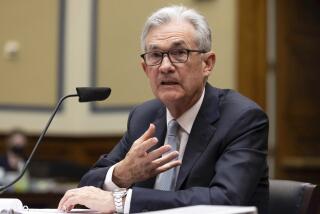Unraveling the Numbers : Suspect statistics can jeopardize U.S. economic policy planning
- Share via
Washington let a lot of programs come unraveled during the happy-go-lucky days of the 1980s when it was trying to cut government down to size. Among the serious areas of neglect are the very programs designed to measure the unraveling so that something can be done about it.
A recent report in National Journal says that, bad as it was, the 1990 census may not be the most important statistical program damaged by deep 1980s staff and budget cuts. Economists, the report says, find the federal statistical base shaky everywhere they look.
In a country that depends as heavily on numbers for making decisions as does the United States, a crisis in number-crunching is cause for more than casual panic. After all, one big factor in the collapse of the Soviet economy was a dismal lack of decent statistics that lulled Moscow leadership into disaster.
The National Assn. of Business Economists suspects that flawed statistics on the gross national product led directly to a 1989 monetary policy that helped let the nation slip into recession the next year. There was a dramatic fall of about 50% in sales of services in 1989 but too few statisticians to gather data in time to warn Washington what was happening.
In another example, the number of statisticians who put together together charts that show the flow of goods and services among different parts of the economy has dwindled to 22. The report, which is supposed to be updated every five years, is so far behind that the Japanese put together their own team. Japan put 200 people on the job. One result is that U.S. trade negotiators complain that the Japanese now “know more about the American economy than the Americans do,” the magazine reported.
President Bush’s chief economic adviser, Michael J. Boskin, is leading a campaign for bigger statistical budgets. Congress must take him seriously, and then some. It is not exactly the stuff of heroic legend. But it could make the difference between having a U.S. economy that prospers or one that unravels.
More to Read
Get the L.A. Times Politics newsletter
Deeply reported insights into legislation, politics and policy from Sacramento, Washington and beyond. In your inbox twice per week.
You may occasionally receive promotional content from the Los Angeles Times.










